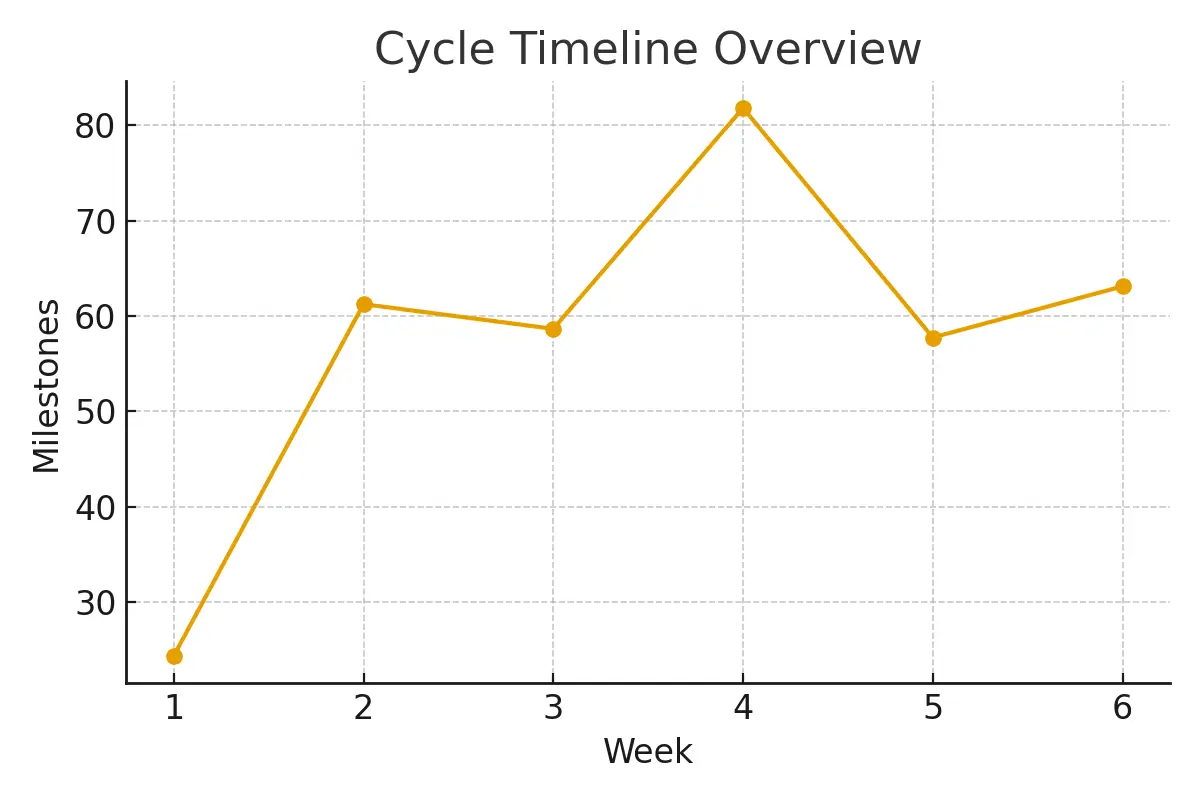
When you’re undergoing IVF in NYC, understanding each phase of the patient journey helps reduce uncertainty and improve outcomes. One of the most critical—and often misunderstood—stages is luteal support after embryo transfer.
This guide explains what luteal support means, who benefits most, how timing influences fertility success rates, and how to navigate IVF costs effectively. The goal: keep care simple, humane, and results-driven.
What Is Luteal Support and Where It Fits in the IVF Journey
During a typical menstrual cycle, the luteal phase occurs after ovulation, when progesterone prepares the uterus for implantation. In IVF, this natural hormone balance may need medical support.
Luteal support involves giving progesterone or other hormones to help the uterine lining remain receptive to the transferred embryo. It bridges the gap between embryo transfer and early pregnancy, helping sustain implantation.
Who Needs Luteal Support and When to Escalate
Not all patients require the same level of support.
You might benefit if:
- You’re undergoing a frozen embryo transfer (FET).
- You have a history of recurrent implantation failure.
- Hormone levels show a short or weak luteal phase.
Escalation may be needed when early symptoms or lab results suggest low progesterone. Sometimes clinics pause support if levels normalize naturally. A data-driven approach helps tailor care while controlling IVF costs.
Step-by-Step: Luteal Support and Timing Checkpoints
Every clinic varies slightly, but most fertility programs in NYC follow a structured approach:
Step 1: Baseline Hormone Evaluation
Before transfer, estradiol and progesterone levels are measured to ensure a receptive uterine lining.
Step 2: Progesterone Start
Support typically begins 3–5 days before embryo transfer (depending on whether embryos are day-3 or day-5).
Step 3: Continuous Monitoring
Bloodwork and ultrasounds confirm optimal levels during the first 10–12 days after transfer.
Step 4: Adjustment and Continuation
If pregnancy is confirmed, support continues for 8–10 weeks until the placenta produces enough progesterone naturally.
This timeline reduces anxiety by offering clear checkpoints, improving predictability and confidence throughout the patient journey.
Pros, Cons, and Practical Costs
Pros
- Increases implantation stability.
- Reduces early miscarriage risk.
- Supports natural hormonal transition.
Cons
- Injections can be uncomfortable.
- Medication costs vary by brand and formulation.
- Overlapping protocols can cause confusion if not streamlined.
Cost Breakdown Example
Understanding the financial side of luteal support helps patients plan ahead and avoid hidden expenses. Below is a general overview of what you can expect when budgeting for this stage of your IVF journey:
Progesterone in Oil (2–3 Weeks): Approximately $150–$300
Used for injections that provide consistent hormone support after transfer.
Oral or Vaginal Progesterone: Around $100–$250
A gentler alternative to injections, depending on your clinic’s recommendation.
Monitoring Visits: Typically $200–$500
Covers bloodwork, ultrasound checks, and progress assessments.
Nurse Consult & Review: Roughly $100–$200
Ensures your care plan and medication schedule stay aligned with your results.
Maintaining a transparent cost list allows patients to accurately compare IVF costs between clinics and make informed decisions about their fertility care.
What Drives Outcomes: Control vs. Monitoring
Some success factors are within patient control—like medication adherence, nutrition, and stress management. Others, like embryo genetics or uterine receptivity, are best monitored by the clinic.
The balance lies in simplifying the plan. As one clinical team expert said:
“Protect timing and keep plans simple—quality improves when noise goes down.”
Clear communication and consistent routines help maintain stability, often improving IVF success rates.
Questions to Ask Your Clinic
When discussing your protocol, ask:
- What form of progesterone do you recommend and why?
- How often will my levels be checked?
- Can I switch to oral medication if injections are painful?
- How do you decide when to stop support?
- How will costs change if we need multiple cycles?
These conversations set expectations and ensure your care plan stays transparent.
Patient Case Study
A couple from NYC entered their IVF cycle unsure about next steps. With guided timing, clear communication, and early monitoring, they achieved a stable pregnancy within one transfer. Aligning logistics and expectations made their journey predictable—and emotionally lighter.
Testimonials
- “The steps finally made sense.” — A.&J., Manhattan
- “Costs were clear; no surprise bills.” — L., Hoboken
- “Nurses replied fast with practical coaching.” — K.&V., Queens
Next Steps with Surrogacy4ll
At Surrogacy4ll, we simplify complex fertility pathways so patients can focus on what matters most—hope and progress. Whether you’re comparing IVF success rates, exploring fertility treatment options in NYC, or clarifying costs, our team provides transparent, evidence-based guidance.
Book your free 15-minute nurse consult, upload labs for a second opinion, or request a cost breakdown for your case today. Your fertility journey deserves clarity, compassion, and confidence—every step of the way.
Frequently Asked Questions (FAQs)
Q: Is luteal support necessary for every IVF cycle?
Ans: Most cycles benefit from some form of luteal support, especially frozen transfers or cases with hormone suppression.
Q: How do IVF costs vary across clinics in NYC?
Ans: Costs depend on medication types, number of cycles, genetic testing, and anesthesia. Always request an itemized breakdown.
Q: What factors most affect IVF success rates?
Ans: Embryo quality, uterine health, timing, and patient lifestyle play the biggest roles.
Q: How long does the luteal phase last after embryo transfer?
Ans: Typically around two weeks, with support continuing until early pregnancy is confirmed and stabilized.
Q: How can Surrogacy4ll support my fertility journey?
Ans: Surrogacy4ll offers personalized IVF coordination, transparent pricing, and expert guidance throughout your fertility journey in NYC.

Dr. Kulsoom Baloch
Dr. Kulsoom Baloch is a dedicated donor coordinator at Egg Donors, leveraging her extensive background in medicine and public health. She holds an MBBS from Ziauddin University, Pakistan, and an MPH from Hofstra University, New York. With three years of clinical experience at prominent hospitals in Karachi, Pakistan, Dr. Baloch has honed her skills in patient care and medical research.





